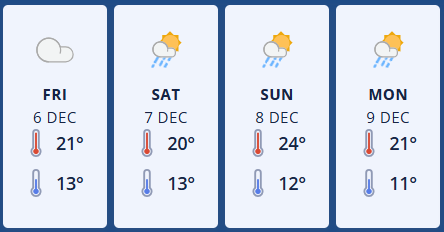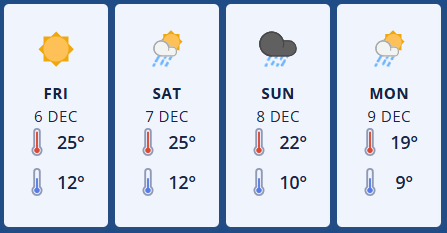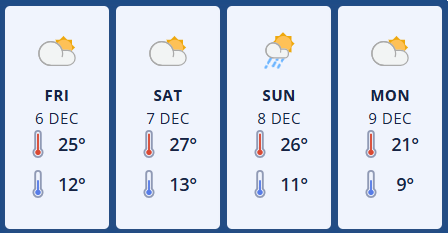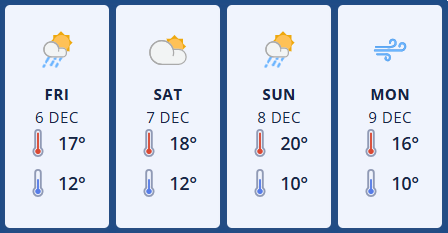Otago Weekly Fishing Report - 5 December 2024
- Otago
- 5/12/2024

Coastal success
The Lower Clutha/Mata-au River is clearing nicely with excellent conditions for spinning, particularly over the many weed beds.
Trout in these areas are often reactive, striking quickly as food passes by. Black or olive patterns are working well, as these colours contrast effectively in the coloured water. Anglers have also been reporting catches of perch, including some impressive over 1kg specimens. Don’t forget, perch make excellent eating with their firm white flesh.
Pictured above: Bernard Morrison with a large perch caught soft baiting on one of the coastal lakes. Credit: Ian Hadland.
Wind slop has occasionally stirred up both Lake Waihola and Lake Waipori, but the water is clearing steadily. Warmer water temperatures have made perch increasingly active, while trout seem to be moving up from the lower river and tidal reaches, creating exciting fishing opportunities. Chartreuse or bright yellow soft baits remain highly effective in the tannin-stained water, with one angler landing three trout and a couple of perch in just an hour.
For fly anglers, a bright streamer pattern could produce similar results, though for those fishing from a boat, using two spin rods is often the best strategy to cover more water efficiently and avoid tangles in the wind.
Mānuka Beetles

A mānuka beetle landed on an angler's net while they were fishing along the edges of Lake Wanaka last week. Credit: Mason Court.
The start of summer often heralds the start of the Mānuka Beetles turning up in our rivers and around our lakes.
Mānuka Beetles are smaller than the Brown Beetles of late spring, distinguished by their shiny, bright green coloration. Typically around 10mm in size, they’re well-represented by a size 16 fly. These beetles thrive in grasslands and vegetation, often near Mānuka trees, from which they get their name.
However, due to their small size and low-riding profile, these patterns can be challenging to track in rough or choppy water. Use a two-fly setup with your Manuka Beetle pattern trailing behind a high-visibility dry fly. This "sighter fly" serves as an indicator: if it disappears suddenly, it’s time to set the hook.
Beetle flies can also be fished on spin tackle using a small bubble float and a couple of foot of 6-8lb leader.
Re-enactment celebrates 150 years of trout fishing

Otago Fish & Game councillor John Highton re-enacts the scene last weekend on the Water of Leith, Dunedin, where Alexandra Campbell Begg became the first licensed angler to catch a trout on December 1, 1874. Credit: Bruce Quirey, Otago Fish & Game.
Trout fishing is a long-standing Kiwi tradition enjoyed today by about 130,000 anglers – and long may that continue.
A historical re-enactment took place in Dunedin last weekend to mark the 150th anniversary of the day when the first trout was caught legally in New Zealand.
Otago Fish & Game councillor John Highton got into the spirit of the occasion playing the role of Alexander Campbell Begg, who caught the first trout under licence on December 1, 1874. We were delighted to have along his descendants, Lal Mulligan and Nick Brady.
You can view the story on 1News or read more on the Fish & Game website.
How did you mark the 150th anniversary of the trout fishing in New Zealand? Send us your favourite fishing photos from the weekend!
Wakatipu Tributaries

Enrique Oritiz with an excellent condition rainbow trout caught from one of the many tributaries that feed into Lake Wakatipu. Credit: Enrique Oritiz.
The recent spell of fine weather has allowed many of the tributaries feeding into Lake Wakatipu to drop and clear, creating fantastic sight fishing conditions.
However, as these rivers continue to drop, the fish are likely to become more cautious, so extend your leaders and decrease fly size when necessary.
Anglers have been having success with small but heavy stonefly patterns, ideal for reaching fish in deeper runs. Soft baits have also proven to be an effective alternative.
The river mouths of these tributaries have been particular hotspots, with anglers reporting good catches of small but delicious salmon and beautifully conditioned rainbow trout. Be sure to exercise extra caution at these river mouths, as they can present hazardous conditions.
Lagoon looking full

A bar blocks Kaikorai Estuary, as seen from the southern shoreline of the lagoon on Wednesday evening.
Good-sized brown trout are sometimes caught in the lower parts of Kaikorai Estuary.
The lagoon was looking full this week as there is currently no major outlet at the beach. Fortunately, it is flushing to a certain extent at high tide. Only minutes from Dunedin, this spot could be well worth exploring with smelt or bully imitations, or lightly weighted lures, while water temperatures are cool. During some seasons, the lagoon has been subject to eutrophication and oxygenation issues in the peak of summer.
Dream streams
It’s a good time to explore South Otago’s small streams.
The Waitahuna River was inviting when we stopped for a quick look the other day.
A fish was rising eagerly – until the photographer stuck his head up too high. Which brings us to two points: now that the weather is starting to settle, it’s a good time to explore South Otago’s small streams while the flows are good and weeds are minimal. Secondly, a low and stealthy approach is always best on small water.
Check, Clean, Dry

With the start of summer and the Christmas holidays just around the corner, now is a good time to remember to Check, Clean, Dry this fishing season.
This is particularly important if you are travelling between the North and South Island to prevent the spread of aquatic pests.
Check: Remove any plant matter from your gear and leave it at the site (the river or lake bank), or put it in the rubbish. Don't wash plant material down any drain.
Clean: There are different requirements for North Island and South Island River and lake users. South Island river and lake users: use 10% dishwashing detergent mixed with water and leave the item wet for 10 minutes. For the north island more detailed information click here.
Dry: Ensure your gear is completely dry to touch, inside and out, then leave dry for at least another 48 hours before you use it (Didymo can survive for months on moist gear).
Clyde Dam live webcam

A screengrab of the Clyde Dam webcam taken at the time of writing.
Want to know conditions at Clyde Dam? Check this live webcam sponsored by Contact Energy updated every 15 minutes.
Lake Wānaka live webcam

A screengrab of Lake Wānaka webcam taken at the time of writing.
Want to know conditions at Lake Wānaka? Check this live webcam from the Wānaka water sports facility.
Here’s the weekend outlook:
Dunedin

Scattered showers are forecast to fall across Dunedin over the weekend. With light winds on Saturday, it looks to be the pick of the weekend to get out fishing. On Sunday, fresh northwesterlies will shift to strong northeasterlies.
The Taieri River at Outram was flowing at 6.19 cumecs. The water temperature was 18.7 degrees C.
Click here for live weather updates.
Wānaka

Raincoats may be needed in Wanaka this weekend, with scattered showers turning heavy on Sunday. Strong northwesterlies are also forecast to develop as weather pushes over from the West Coast. On the positive side, the warm air temperatures are likely to make fishing in the occasional shower quite pleasant.
Click here for live weather updates.
Alexandra

Overcast conditions, with the odd shower, are forecast for Alexandra this weekend. Light winds are expected on Saturday morning before developing into strong northwesterlies. On Sunday, showers are forecast to ease later in the morning, with northwesterlies strengthening.
Click here for live weather updates.
Clutha Regional Forecast

Variable weather is forecast for the Lower Clutha, with isolated showers and westerlies both expected to ease in the afternoon. On Sunday, occasional rain is forecast to clear, with northeasterlies turning to gale-force northwesterlies late in the day.
The Pomahaka River was flowing at 6.18 cumecs.
The lower Clutha River at Balclutha was flowing at 848 cumecs.
Click here for live weather updates.
For more ORC water monitoring and alerts information click here.
Grab your licence online and let the angling adventures begin.
Got any Otago fishing news?
Send your fishing news and photos (with anglers’ names) to otago@fishandgame.org.nz for consideration in the weekly report.